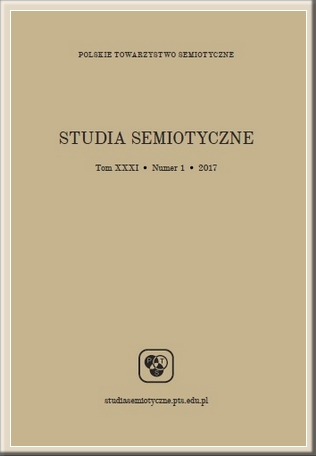Abstract
DOI: http://doi.org/10.26333/sts.xxxi1.08
According to the most popular (so-called “orthodox”) theories, counterfactuals with impossible antecedents are vacuously true. Critiques of this view argue that contrary to this, we tend to consider only some of them true and others to be false. In his recent paper (“Counterpossibles”) Timothy Williamson has ingeniously explained the motivations for the orthodox view and argued that although there are some heuristic reasons that may suggest the plausibility of the unorthodox view, they are fallible. The most important of Williamson’s arguments is that the unorthodox interpretation is inconsistent with the heuristic assumption that supposedly motivates this very view. The aim of this paper is to consider Williamson’s critique and to support the unorthodox approach towards counterpossibles. In order to do so, we argue in favour of the modified version of the heuristic assumption.
References
Barcan Marcus, R. (1995), Modalities, Oxford: Oxford University Press
Bennett, J. (2003), A Philosophical Guide to Conditionals, Oxford: Oxford University Press
Berto, F. (2013), Impossible Worlds, w: E.N. Zalta (ed.), The Stanford Encyclopedia of Philosophy, URL: <http://plato.stanford.edu/entries/impossibleworlds>
Brogaard B., Salerno J. (2013), Remarks on Counterpossibles, „Synthése” 190, s. 639– 660
Edgington, D. (1995), On Conditionals, „Mind” 104, s. 235–329
Emery, N., Hill, C. (2017), Impossible Worlds and Metaphysical Explanation: Comments on Kment’s ”Modality and Explanatory Reasoning”, „Analysis” 77(1), s. 134–148
Grice, P.H. (1975/1977), Logika a konwersacja, tłum. J. Wajszczuk, „Przegląd Humanistyczny” 6, s. 85–99
Hitchcock, C., Sober, E. (2004), Prediction Versus Accommodation and the Risk of Overfitting, „British Journal for the Philosophy of Science” 55(1), s. 1–34
Ingarden, R. (1935), Analiza zdania warunkowego, w: R. Ingarden (1972), Z teorii języka i filozoficznych podstaw logiki, Warszawa: PWN, s. 260–313
Jackson, F. (1988), Conditionals, Oxford: Blackwell
Lewis, D. (1973), Counterfactuals, Oxford: Blackwell
Lewis, D. (1986), On the Plurality of Worlds, Oxford: Blackwell
Nolan, D. (1997), Impossible Worlds: Modest Approach, „Notre Dame Journal of Formal Logic” 38(4), s. 535–572
Priest, G. (2009), Conditionals: A Debate with Jackson, w: I. Ravenscroft (ed.), Minds, Worlds, and Conditionals: Themes from the Philosophy of Frank Jackson, Oxford: Oxford University Press, s. 311–335
Sendłak, M. (2013), Teorie metafizyczne światów niemożliwych, „Studia Philosophica Wratislaviensia”, Vol. VIII, Fasc. 3, s. 17–41
Stalnaker, R. (1968), A Theory of Conditionals, w: Nicholas Rescher (ed.), Studies in Logical Theory, Oxford: Blackwell, s. 98–112
Stalnaker, R. (1996), Impossibilities, „Philosophical Topics” 24, s. 193–204
Williamson, T. (2007), Philosophy of Philosophy, Oxford: Oxford University Press
Williamson, T. (2016a), Knowing by Imagining, w: P. Kung, A. Kind (eds.), Knowledge Through Imagination, Oxford: Oxford University Press, s. 113–132
Williamson, T. (2016b), Counterpossibles, „Topoi” [online first]
Williamson, T. (2016c), Counterpossibles in Metaphysics, w: F. Kroon (ed.), Philosophical Fictionalism, Oxford: Oxford University Press [w druku]
Williamson, T. (2016d), Abductive Philosophy, „The Philosophical Forum” 47, s. 263–280
Yagisawa, T. (1988), Beyond Possible Worlds, „Philosophical Studies” 53, s. 175–204.

